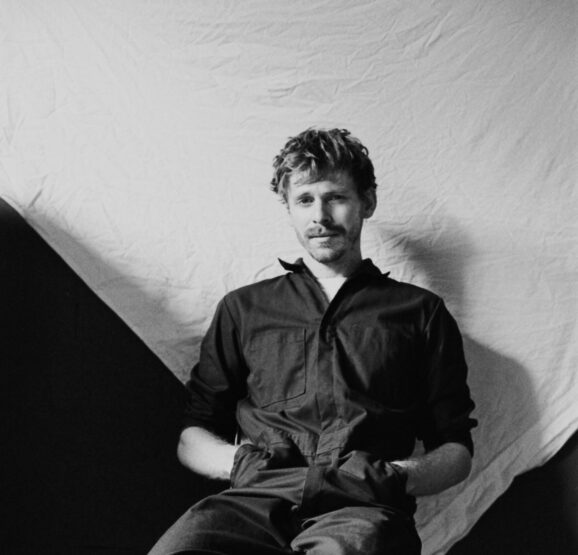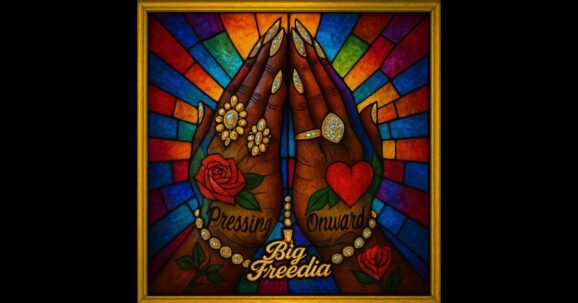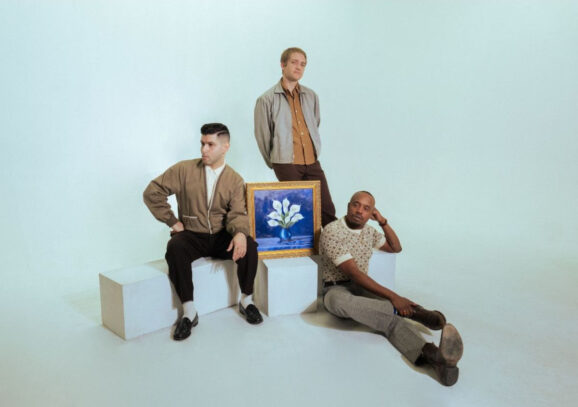By now, people know what to expect from an Interpol album. There’s a formula: layered angular guitars, staccato rhythms, angsty lyrics, and Paul Banks’s disaffected baritone. And the formula works, as evidenced by the Manhattan band’s long list of great rock songs. But with any formula, it only takes one new variable to change everything. Such is the case with the band’s seventh album, The Other Side of Make-Believe.
That variable was the COVID-19 pandemic. Interpol typically writes songs live as a group, but with each member in a different location spread out over various time zones, they opted to work separately this time, each member composing songs or parts of songs on their own.
The result is an album that still sounds like Interpol, but different. Several songs, such as the brooding piano ballad “Something Changed,” have more breathing room in the composition rather than densely layering competing riffs. The songs are also more subtle. There are no big anthemic choruses. Instead, the album has a more relaxed atmosphere.
But the biggest and most obvious difference is with Banks’s voice. Known for shouted monotone vocals at the low registers, this time he’s softer, sings with more melody, and even carries a feeling of vulnerability. His voice cracks, quivers, and sings with a higher than normal dynamic range. His voice is also put lower in the mix, often overpowered by the instruments.
“Toni” opens the album with a positive mid-tempo ballad built around a simple repeated piano line. Banks sings of drowning out negativity with a concerted effort at optimism. “I’d like to see them win; it’s my kind of aspiration like it’s going in the right direction,” he sings, his voice scratchy, wavering, and soft. In the chorus and outro, Banks sings a vocal harmony that goes all the way up into falsetto range.
There’s a lot more falsetto in “Fables.” The song, built around a bouncing R&B groove and guitarist Daniel Kessler’s arpeggiated riffs played mostly on a single string, has an eerie quality, due to Kessler’s tone and Bank’s raspy vocal harmony. But despite the unsettling tone, the subject matter is again positive, this time about refusing to succumb to the awful things going on around him. “It’s time we made something stable,” Banks sings. “We’re in the sights of perfect danger.”
For more rocking fare, songs like “Renegade Hearts” and “Mr. Credit” fit the bill nicely and would have sounded fine on Turn On the Bright Lights. The latter is an infectious upbeat track with a thumping rhythm and a good use of small quiet moments to break up the propulsive beat. “I wanna be there when you touch fire; I’ll be the hand that you clutch,” Banks sings.
The first couple of songs, it’s tempting to think that Bank’s positive lyrics are sarcastic. This is Paul Banks, after all. But as The Other Side of Make-Believe goes on, it’s clear that he’s being genuine. His stark voice and subject matter would’ve been fitting for a pandemic record, but he instead made the decision to go against the grain and explore brighter territory, both thematically and sonically.
The softer, subtler sound of The Other Side of Make-Believe means it’s never able to reach the greatness of the peak moments of Turn On the Bright Lights or Antics. It simply doesn’t have those powerful moments. Despite that and Banks occasionally singing outside of his range, it’s a solid effort and a welcome splash of color to Interpol’s dour palette.












